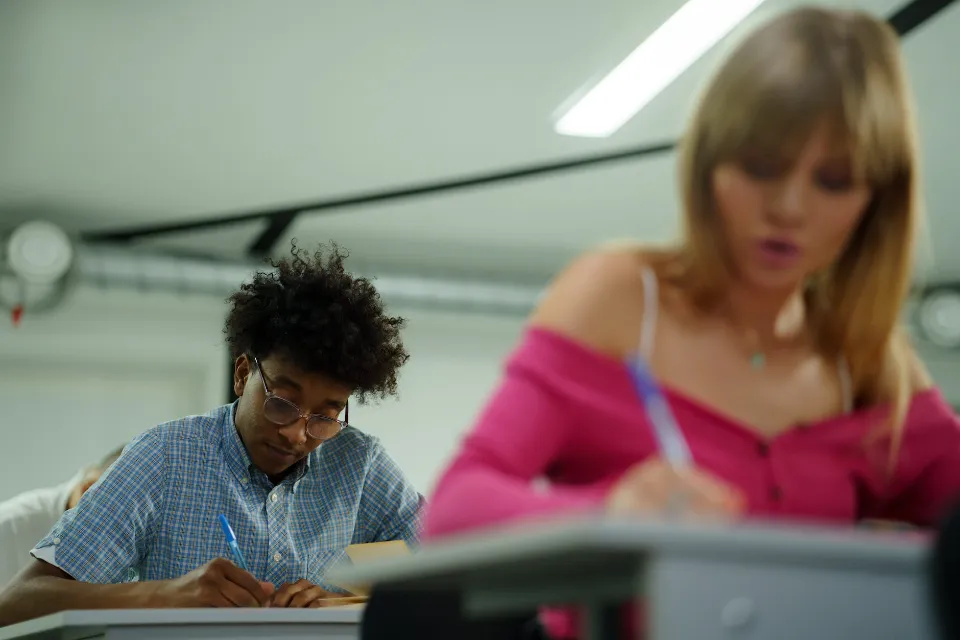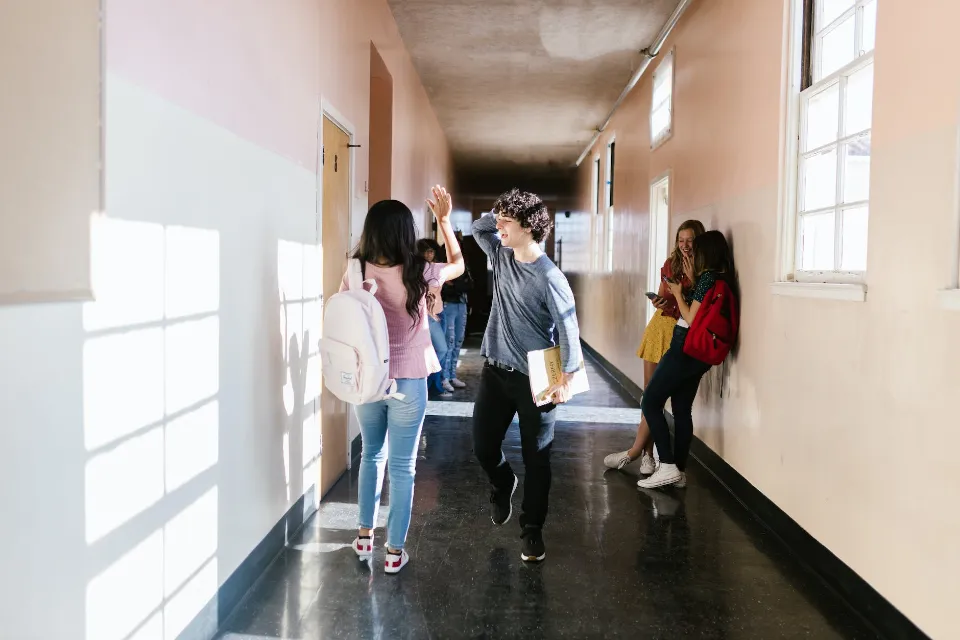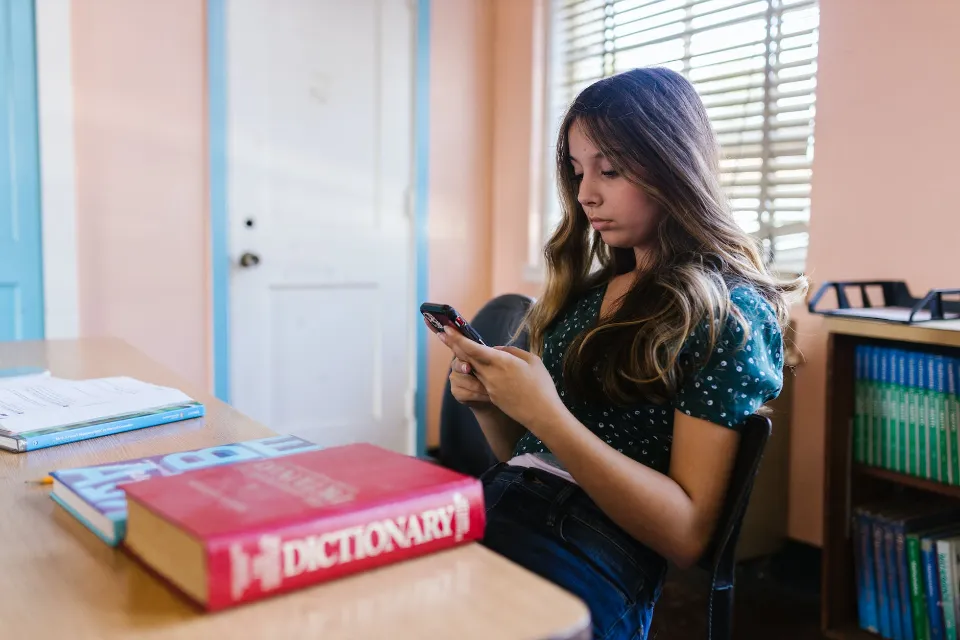
21 Classroom Rules for Improving High School Students’ Behavior
Your students can maximize their high school experience by establishing these key guidelines!
Managing high school students can be difficult, particularly in light of all the changes our students are undergoing. Even more so when working with high school students, rules are an important component of every classroom. Teenagers, despite the fact that many of them are mature and highly capable, can still benefit from structure and rules due to their developing hormones and complicated social lives.
It is crucial to explain the rationale behind your decision to implement a set of rules as well as how doing so will help your classroom run smoothly and effectively. Here are some:
Punctuality
Not rushing through the door as soon as the bell rings constitute being on time. It entails being seated and prepared for action when class starts. Don’t be tardy!
Be Attentive to Teachers While Teaching
While teachers are conducting lessons, it is imperative that they pay close attention to what is going on in the room. While classes are in session, you can unwind during the breaks and focus on listening. This will enable you to ask the teacher any questions you have right away and ensure that you don’t miss any important parts of the lesson.

No Vandalism is Allowed in the Classroom
On no account is it permitted in the classroom to intentionally damage things? Recognize that the classroom’s furniture—including the desks, chairs, blackboard, and cabinets—is standard.
Always treat it gently, and nothing, not even scribbling on desks, is permitted. Feel as though the following group of students will be using these items again, and it is your duty to provide them with a clean set.
Be Well Dressed in a Complete Uniform
Always come to the classroom in complete uniform as described in school policy. If you have long hair, it’s a good idea to plate it and stay away from jewelry. Assure proper dress washing and daily sock replacement. Being well-groomed when you arrive at class can help you stay alert all day.
No Smartphones, Tablets, Or Other Personal Devices
When not in use between classes, all personal electronics should be kept in your locker during the day. Under no circumstances should phones be used in class; if they are, they will be seized and kept until the end of the lesson.
Take Care of Out-of-classroom Responsibilities before and After Class
Before class, make sure you take everything you need out of your locker. Using the restroom or attending to other personal needs can be done during the break between classes. Only request a Hall Pass when it is unavoidable.
Come to Class Prepared
You, your classmates, and the teacher will all be greatly distracted if you arrive to class unprepared. Get to class early if you forgot something at home so you can solve the issue PRIOR to the start of class. Make every effort to limit the commotion!

Begin Any Posted Assignment at the Very Start of Class
Make sure to get started on any in-class assignments the moment they are written on the board. If you have in-class work, you cannot chat with your neighbor for the first five to ten minutes of class.
Respect Your Body
You must realize that caring for and showing respect for your body is your responsibility. Never ever let anyone touch you without your permission. Numerous reports of bullying in schools have been made. If you experience any such incidents, straight away tell your parents and report it to the teacher.
Keep Your Classroom Clean
You are in charge of maintaining cleanliness in the classroom. It is not recommended to leave your classroom premises littered; instead, use trash cans to dispose of waste. Make sure you don’t spill any food or water while having lunch, and ask the cleaning staff for help if you do.
Be Polite in Your Manner and Speech
Bullying of any kind is unacceptable, and we uphold this policy. Whether speaking to teachers, fellow students, or classroom assistants, always act courteously and respectfully. Never behave rudely or angrily, whether it’s in a classroom or elsewhere.
Don’t Speak Out of Turn
Be considerate of your classmates and use an “inside voice” that doesn’t disturb others when talking is allowed, such as when working in small groups. During class discussions, raise your hand whenever you have something to add.

No Cheating
It doesn’t matter if it’s homework or an exam—if a student is caught plagiarizing, they’ll be sent to the principal’s office, and their parents will be informed. Cheating is never a good idea, so if you require additional support in a particular area, ask for assistance.
Pay Attention to the Teacher and Their Instructions
Nobody wants to have to wait while a student falls behind. Your inattentiveness could slow down the entire class and create an unneeded commotion.
Wait for Your Turn in Queues
It is recommended to stand politely in line and wait your turn whenever you are asked to join a line. Always maintain a safe distance from the person in front of you and resist the urge to nudge them forward. Furthermore, pushing people back so you can get in front of them in line is not a good attitude.
Class Lasts until the Bell Sounds
Once the class is over, wait to start packing. Although getting to your next class early may be something you want to do, doing so might disturb the class.
Never Pack Up Before It’s Time to Leave
When the end of the class is in sight, it might be tempting to leave early. However, before getting ready to leave, you should wait until the teacher has dismissed you.
Turn in Work on Time
Never submit your work after the due date unless an extension has been granted. The grade for late assignments will be lower.
Use Technology for Learning
Use technology for learning if the class is using computers or tablets for a lesson. Use social media and avoid online browsing.
Makeup Missed Work
If you have missed a lesson or an assignment, make arrangements with your teacher to complete the work.
If You Have a Question, Ask for Help
Ask your teacher or a fellow student for clarification if something, such as the assignment instructions or something in your reading materials, is unclear.


